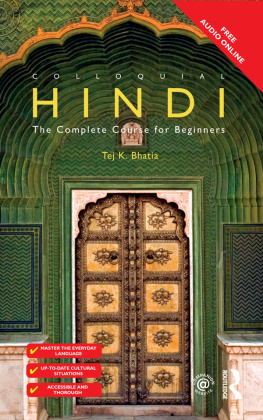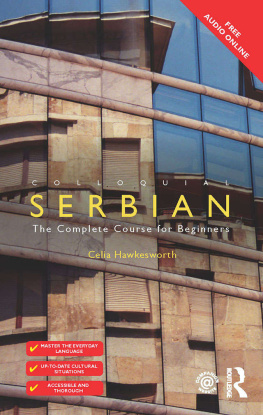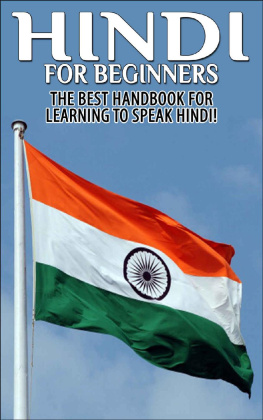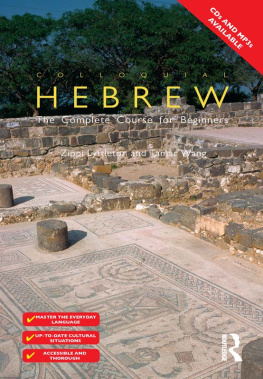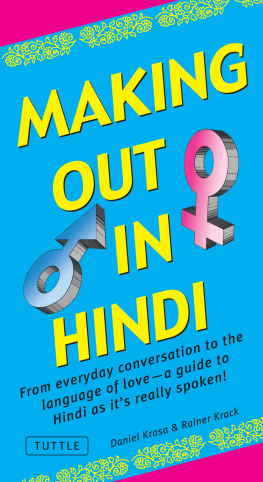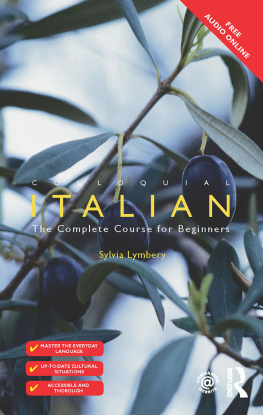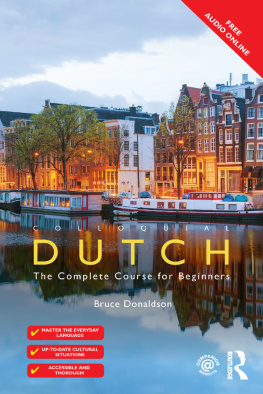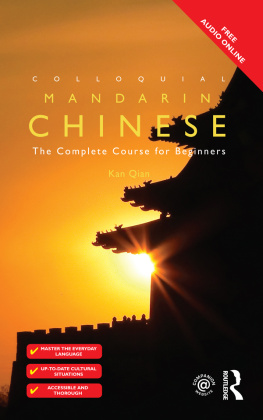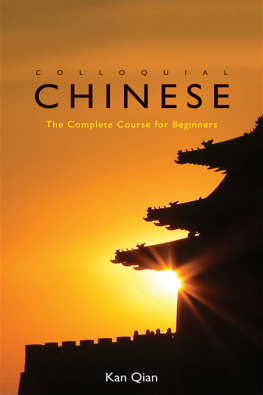Tej K Bhatia - Colloquial Hindi: The Complete Course for Beginners
Here you can read online Tej K Bhatia - Colloquial Hindi: The Complete Course for Beginners full text of the book (entire story) in english for free. Download pdf and epub, get meaning, cover and reviews about this ebook. year: 2008, publisher: Routledge, genre: Science / Home and family. Description of the work, (preface) as well as reviews are available. Best literature library LitArk.com created for fans of good reading and offers a wide selection of genres:
Romance novel
Science fiction
Adventure
Detective
Science
History
Home and family
Prose
Art
Politics
Computer
Non-fiction
Religion
Business
Children
Humor
Choose a favorite category and find really read worthwhile books. Enjoy immersion in the world of imagination, feel the emotions of the characters or learn something new for yourself, make an fascinating discovery.
- Book:Colloquial Hindi: The Complete Course for Beginners
- Author:
- Publisher:Routledge
- Genre:
- Year:2008
- Rating:3 / 5
- Favourites:Add to favourites
- Your mark:
Colloquial Hindi: The Complete Course for Beginners: summary, description and annotation
We offer to read an annotation, description, summary or preface (depends on what the author of the book "Colloquial Hindi: The Complete Course for Beginners" wrote himself). If you haven't found the necessary information about the book — write in the comments, we will try to find it.
Colloquial Hindi provides a step-by-step course in Hindi as it is written and spoken today. Combining a user-friendly approach with a thorough treatment of the language, it equips learners with the essential skills needed to communicate confidently and effectively in Hindi in a broad range of situations. No prior knowledge of the language is required.
Key features include:
progressive coverage of speaking, listening, reading and writing skills
structured, jargon-free explanations of grammar
an extensive range of focused and stimulating exercises
realistic and entertaining dialogues covering a broad variety of scenarios
useful vocabulary lists throughout the text
an overview of the sounds and alphabet of Hindi
additional resources available at the back of the book, including a full answer key, a grammar summary, bilingual glossaries and English translations of dialogues.
Balanced, comprehensive and rewarding, Colloquial Hindi will be an indispensable resource both for independent learners and for students taking courses in Hindi.
Accompanying audio material is available to purchase separately on two CDs or in MP3 format, or comes included in the great value Colloquial Hindi pack. Recorded by native speakers, the audio complements the book and will help enhance learners listening and speaking skills.
Course components:
The complete course comprises the book and audio materials. These are available to purchase separately in paperback, ebook, CD and MP3 format. The paperback and CDs can also be purchased together in the great-value Colloquials pack.
Paperback: 978-0-415-41956-7 (please note this does not include the audio)
CDs : 978-0-415-39528-1
Ebook: 978-0-203-43152-8 (available from http://ebookstore.tandf.co.uk/audio_viewbooks.aspx. Please note this does not include the audio)MP3s: 978-0-415-49823-4 (available to purchase from http://ebookstore.tandf.co.uk/audio_viewbooks.aspx)Pack : 978-0-415-39527-4 (paperback and CDs)
Tej K Bhatia: author's other books
Who wrote Colloquial Hindi: The Complete Course for Beginners? Find out the surname, the name of the author of the book and a list of all author's works by series.

